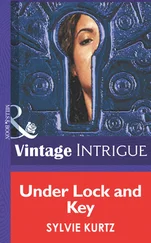Коллектив авторов - The Lock and Key Library - The most interesting stories of all nations - American
Здесь есть возможность читать онлайн «Коллектив авторов - The Lock and Key Library - The most interesting stories of all nations - American» — ознакомительный отрывок электронной книги совершенно бесплатно, а после прочтения отрывка купить полную версию. В некоторых случаях можно слушать аудио, скачать через торрент в формате fb2 и присутствует краткое содержание. Жанр: foreign_antique, foreign_prose, на английском языке. Описание произведения, (предисловие) а так же отзывы посетителей доступны на портале библиотеки ЛибКат.
- Название:The Lock and Key Library: The most interesting stories of all nations: American
- Автор:
- Жанр:
- Год:неизвестен
- ISBN:нет данных
- Рейтинг книги:5 / 5. Голосов: 1
-
Избранное:Добавить в избранное
- Отзывы:
-
Ваша оценка:
- 100
- 1
- 2
- 3
- 4
- 5
The Lock and Key Library: The most interesting stories of all nations: American: краткое содержание, описание и аннотация
Предлагаем к чтению аннотацию, описание, краткое содержание или предисловие (зависит от того, что написал сам автор книги «The Lock and Key Library: The most interesting stories of all nations: American»). Если вы не нашли необходимую информацию о книге — напишите в комментариях, мы постараемся отыскать её.
The Lock and Key Library: The most interesting stories of all nations: American — читать онлайн ознакомительный отрывок
Ниже представлен текст книги, разбитый по страницам. Система сохранения места последней прочитанной страницы, позволяет с удобством читать онлайн бесплатно книгу «The Lock and Key Library: The most interesting stories of all nations: American», без необходимости каждый раз заново искать на чём Вы остановились. Поставьте закладку, и сможете в любой момент перейти на страницу, на которой закончили чтение.
Интервал:
Закладка:
Mrs. Brigham passed a large fluff of handkerchief across her eyes;
Rebecca sobbed outright.
"Rebecca," said Caroline admonishingly, keeping her mouth stiff and swallowing determinately.
"I never heard him speak a cross word, unless he spoke cross to Henry that last night. I don't know, but he did from what Rebecca overheard," said Emma.
"Not so much cross as sort of soft, and sweet, and aggravating," sniffled Rebecca.
"He never raised his voice," said Caroline; "but he had his way."
"He had a right to in this case."
"Yes, he did."
"He had as much of a right here as Henry," sobbed Rebecca, "and now he's gone, and he will never be in this home that poor father left him and the rest of us again."
"What do you really think ailed Edward?" asked Emma in hardly more than a whisper. She did not look at her sister.
Caroline sat down in a nearby armchair, and clutched the arms convulsively until her thin knuckles whitened.
"I told you," said she.
Rebecca held her handkerchief over her mouth, and looked at them above it with terrified, streaming eyes.
"I know you said that he had terrible pains in his stomach, and had spasms, but what do you think made him have them?"
"Henry called it gastric trouble. You know Edward has always had dyspepsia."
Mrs. Brigham hesitated a moment. "Was there any talk of an – examination?" said she.
Then Caroline turned on her fiercely.
"No," said she in a terrible voice. "No."
The three sisters' souls seemed to meet on one common ground of terrified understanding through their eyes. The old-fashioned latch of the door was heard to rattle, and a push from without made the door shake ineffectually. "It's Henry," Rebecca sighed rather than whispered. Mrs. Brigham settled herself after a noiseless rush across the floor into her rocking-chair again, and was swaying back and forth with her head comfortably leaning back, when the door at last yielded and Henry Glynn entered. He cast a covertly sharp, comprehensive glance at Mrs. Brigham with her elaborate calm; at Rebecca quietly huddled in the corner of the sofa with her handkerchief to her face and only one small reddened ear as attentive as a dog's uncovered and revealing her alertness for his presence; at Caroline sitting with a strained composure in her armchair by the stove. She met his eyes quite firmly with a look of inscrutable fear, and defiance of the fear and of him.
Henry Glynn looked more like this sister than the others. Both had the same hard delicacy of form and feature, both were tall and almost emaciated, both had a sparse growth of gray blond hair far back from high intellectual foreheads, both had an almost noble aquilinity of feature. They confronted each other with the pitiless immovability of two statues in whose marble lineaments emotions were fixed for all eternity.
Then Henry Glynn smiled and the smile transformed his face. He looked suddenly years younger, and an almost boyish recklessness and irresolution appeared in his face. He flung himself into a chair with a gesture which was bewildering from its incongruity with his general appearance. He leaned his head back, flung one leg over the other, and looked laughingly at Mrs. Brigham.
"I declare, Emma, you grow younger every year," he said.
She flushed a little, and her placid mouth widened at the corners.
She was susceptible to praise.
"Our thoughts to-day ought to belong to the one of us who will
NEVER grow older," said Caroline in a hard voice.
Henry looked at her, still smiling. "Of course, we none of us forget that," said he, in a deep, gentle voice, "but we have to speak to the living, Caroline, and I have not seen Emma for a long time, and the living are as dear as the dead."
"Not to me," said Caroline.
She rose, and went abruptly out of the room again. Rebecca also rose and hurried after her, sobbing loudly.
Henry looked slowly after them.
"Caroline is completely unstrung," said he. Mrs. Brigham rocked. A confidence in him inspired by his manner was stealing over her. Out of that confidence she spoke quite easily and naturally.
"His death was very sudden," said she.
Henry's eyelids quivered slightly but his gaze was unswerving.
"Yes," said he; "it was very sudden. He was sick only a few hours."
"What did you call it?"
"Gastric."
"You did not think of an examination?"
"There was no need. I am perfectly certain as to the cause of his death."
Suddenly Mrs. Brigham felt a creep as of some live horror over her very soul. Her flesh prickled with cold, before an inflection of his voice. She rose, tottering on weak knees.
"Where are you going?" asked Henry in a strange, breathless voice.
Mrs. Brigham said something incoherent about some sewing which she had to do, some black for the funeral, and was out of the room. She went up to the front chamber which she occupied. Caroline was there. She went close to her and took her hands, and the two sisters looked at each other.
"Don't speak, don't, I won't have it!" said Caroline finally in an awful whisper.
"I won't," replied Emma.
That afternoon the three sisters were in the study, the large front room on the ground floor across the hall from the south parlor, when the dusk deepened.
Mrs. Brigham was hemming some black material. She sat close to the west window for the waning light. At last she laid her work on her lap.
"It's no use, I cannot see to sew another stitch until we have a light," said she.
Caroline, who was writing some letters at the table, turned to
Rebecca, in her usual place on the sofa.
"Rebecca, you had better get a lamp," she said.
Rebecca started up; even in the dusk her face showed her agitation.
"It doesn't seem to me that we need a lamp quite yet," she said in a piteous, pleading voice like a child's.
"Yes, we do," returned Mrs. Brigham peremptorily. "We must have a light. I must finish this to-night or I can't go to the funeral, and I can't see to sew another stitch."
"Caroline can see to write letters, and she is farther from the window than you are," said Rebecca.
"Are you trying to save kerosene or are you lazy, Rebecca Glynn?" cried Mrs. Brigham. "I can go and get the light myself, but I have this work all in my lap."
Caroline's pen stopped scratching.
"Rebecca, we must have the light," said she.
"Had we better have it in here?" asked Rebecca weakly.
"Of course! Why not?" cried Caroline sternly.
"I am sure I don't want to take my sewing into the other room, when it is all cleaned up for to-morrow," said Mrs. Brigham.
"Why, I never heard such a to-do about lighting a lamp."
Rebecca rose and left the room. Presently she entered with a lamp – a large one with a white porcelain shade. She set it on a table, an old-fashioned card-table which was placed against the opposite wall from the window. That wall was clear of bookcases and books, which were only on three sides of the room. That opposite wall was taken up with three doors, the one small space being occupied by the table. Above the table on the old-fashioned paper, of a white satin gloss, traversed by an indeterminate green scroll, hung quite high a small gilt and black-framed ivory miniature taken in her girlhood of the mother of the family. When the lamp was set on the table beneath it, the tiny pretty face painted on the ivory seemed to gleam out with a look of intelligence.
"What have you put that lamp over there for?" asked Mrs. Brigham, with more of impatience than her voice usually revealed. "Why didn't you set it in the hall and have done with it. Neither Caroline nor I can see if it is on that table."
"I thought perhaps you would move," replied Rebecca hoarsely.
"If I do move, we can't both sit at that table. Caroline has her paper all spread around. Why don't you set the lamp on the study table in the middle of the room, then we can both see?"
Читать дальшеИнтервал:
Закладка:
Похожие книги на «The Lock and Key Library: The most interesting stories of all nations: American»
Представляем Вашему вниманию похожие книги на «The Lock and Key Library: The most interesting stories of all nations: American» списком для выбора. Мы отобрали схожую по названию и смыслу литературу в надежде предоставить читателям больше вариантов отыскать новые, интересные, ещё непрочитанные произведения.
Обсуждение, отзывы о книге «The Lock and Key Library: The most interesting stories of all nations: American» и просто собственные мнения читателей. Оставьте ваши комментарии, напишите, что Вы думаете о произведении, его смысле или главных героях. Укажите что конкретно понравилось, а что нет, и почему Вы так считаете.












